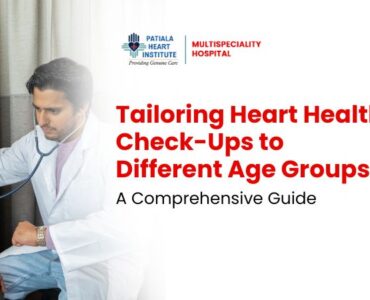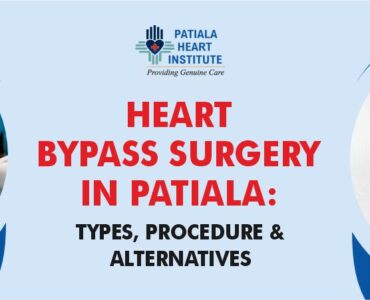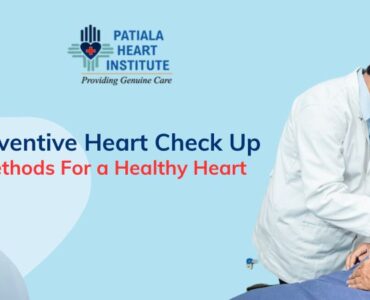Keeping the heart healthy and preventing cardiovascular diseases require screening and managing the risk factors that can damage the heart and blood vessels.
A cardiologist may advise various screening tests to assess cardiovascular health and understand the risk factors. The cardiovascular system of the body includes the heart and blood vessels.
During a heart health checkup, a cardiologist will look for signs of heart disease and consider risk factors that can result in the onset of cardiovascular disease. Risk factors for heart disease include:
- High cholesterol
- High blood pressure
- High blood glucose
- Obesity
- Lifestyle habits like alcohol use and smoking
- Family history of heart disease
Routine heart health checkups and consultations with cardiologists should start around 20 years of age as preventive healthcare. The frequency of follow-ups will depend on the results and the risk involved.
Cardiologist Consultation
Regular cardiologist consultations are important for the early screening of cardiovascular diseases. Cardiologists perform routine checks on the heart during consultations to detect early signs of heart disease and check heart health. If the results from the tests show signs of heart disease or risk of developing one in the future, the doctor may recommend additional tests. Routine tests for heart checkups will include:
1. Blood pressure test
Blood pressure is a silent risk factor for heart attack, and it may go undetected as it doesn’t usually have any symptoms. However, high blood pressure increases the risk of cardiovascular diseases and stroke. Blood pressure above 120/80 mmHg requires frequent monitoring as high blood pressure can risk your heart health.
If the blood pressure is 120/80 mmHg, a doctor may advise screening every two years after 20 years of age. Diet, lifestyle changes, and medication can control high blood pressure.
2. Lipid profile
It is a blood test to measure total cholesterol (HDL and LDL) and triglycerides. The normal levels should be:
- Total cholesterol – Not more than 200 mg/dL
- LDL – 100 mg/dL or lower
- HDL – above 40 mg/dL
- Triglycerides – 150 mg/dL or lower
An increased level of lipoproteins can indicate an increased risk of heart disease and stroke. If the results are normal, one should get the tests every 4-6 years.
3. Blood Glucose
High blood sugar or glucose levels increase the risk of insulin resistance and type-2 diabetes. Unmanaged diabetes can lead to several health risks, including heart disease, arterial disease, stroke, and kidney failure. People above 45 should get their blood glucose levels tested at least once every three years.
4. Complete Blood Count (CBC)
The complete blood count test is a blood test to evaluate a person’s overall health and detect various health conditions. A complete blood count test measures several features, such as:
- Red blood cells
- White blood cells
- Platelets
- Hemoglobin
- Hematocrit
An increase or decrease in cell count may indicate a repressed medical condition that requires immediate medical attention.
Types of tests for heart health
A doctor may recommend one or more of these tests to assess and diagnose heart health if you have a heart problem or symptoms of heart disease:
1. Electrocardiography (ECG or EKG)
Electrocardiography measures the heart’s electrical activity and provides information about the heart’s rhythm. A cardiac ECG measures the time electrical waves travel from one part of the heart to another. This shows whether the heart’s electrical activity is slow, fast, irregular, or normal.
ECG also measures the electrical activity that passes through the heart muscle. The readings can indicate if parts of the heart are overworked or enlarged. ECG can help detect:
- Arrhythmias: a heart condition where it beats too fast, too slow, or irregularly.
- Coronary heart disease: In coronary heart disease, the heart’s blood supply is interrupted or blocked due to plaque buildup.
- Heart attack: A heart condition in which the heart’s blood supply is blocked suddenly.
- Cardiomyopathy: A heart condition in which the heart walls become enlarged or thickened.
2. Echocardiography
An echocardiogram or “echo” is a heart test that uses sound waves to generate a scan of the heart and blood vessels. In echocardiography, a probe sends high-frequency sound waves that create echoes after bouncing from various body parts. The probe picks these echoes to generate a moving image on the monitor.
Echocardiography is carried out to check the structure of the heart and the surrounding blood vessels. It can help detect the following heart conditions:
- Heart failure: A heart condition in which the heart cannot pump enough blood to the body
- Congenital heart disease: Heart defects and disorders present since the birth
- Cardiomyopathy: enlargement or thickening of heart walls
- Damage from a heart attack: Damage to the heart due to sudden blockage of the blood supply
- Endocarditis: An infection in the heart’s lining that can damage heart valves
- Heart valve disease: A condition in which the valves of the heart are damaged and unable to prevent blood flow in the opposite direction.
3. Cardiac CT scan
A cardiac CT scan uses X-rays to view the heart and the blood vessels. The CT scan of the heart creates an image of the heart to check for plaque buildup in arteries. A coronary CT angiography is a heart blockage test done by injecting a dye into the bloodstream to see the plaque buildup in coronary arteries.
A cardiac CT scan can help in:
- Assessing the structure of the heart
- Determining blockages in coronary arteries due to plaque buildup
- Detecting damage or injury to the heart’s valves
- Detecting congenital heart diseases
4. Chest X-Ray
A small amount of radiation generates an image of the heart, blood vessels, and lungs. The X-ray image shows the heart’s size and shape and the blood vessels’ outline. The test can clearly show abnormalities in the shape and size of the heart, calcium deposits in blood vessels, and aortic aneurysms. Chest X-ray may be recommended for screening the following conditions:
- Congenital heart disease
- Enlargement of the heart
- Heart failure
- Heart valve disorder
- Aneurysm: formation of a bulge in the walls of the blood vessel
- Calcium buildup in the heart or blood vessels
- To check if the defibrillator, pacemaker, or other device is in place.
5. Exercise Cardiac Stress Test
Exercise cardiac stress test or exercise tolerance test shows the ability of the heart to supply blood and check the heart’s rhythms during exercise. The test monitors heart rate, blood pressure, breathing, level of tiredness, and heart activity while exercising.
The test is done to analyze the following:
- Changes in the heart rhythms during activity
- Heart health
- The efficiency of the heart in pumping blood during exertion
6. Renal Function Tests (RFT)
Renal function tests are blood or urine tests that evaluate kidney function. The test measures levels of different substances in the blood, including glucose, proteins, and electrolytes, to determine overall renal health. The test also measures the glomerular filtration rate (GFR) to assess the ability of the kidney to clear waste from the system.
7. Liver Function Test (LFT)
The liver function test is a blood test that diagnoses liver damage or disease. The test measures the level of certain proteins, enzymes, and other substances made by the liver. The LFT measures the level of the following elements in the blood:
- Proteins: Albumin, Prothrombin Time (PT), and total protein
- Enzymes: Alkaline Phosphatase (ALP), Alanine Transaminase (ALT), Aspartate Aminotransferase (AST), L-lactate dehydrogenase (LD), and gamma-glutamyl transferase (GGT)
- Bilirubin: a waste product
Dietician Consultation
The cardiologist may recommend a dietician consultation if a person is diagnosed with cardiovascular disease or at risk of developing one in the future. A dietician will suggest heart-healthy dietary and lifestyle changes to improve your heart health.
Regular heart checkup is important to check for the early signs of heart disease and get the right treatment before the condition worsens and cause complications. Consult your doctor on how often you should get heart checkups based on your health needs and medical history.
Patiala Heart Institute is the best multispeciality hospital that offers elite healthcare services to its patients. Our highly experienced and professional cardiologists offer premier heart care services.
Have any heart-related problems or want to get a routine heart health checkup? Book an appointment with our cardiologists today.
What is the best test to check for heart problems?
The best test for heart problems depends on the condition that needs to be diagnosed. A cardiologist will recommend a heart test based on your symptoms and the heart problem that needs to be diagnosed.
Is ECG enough to detect heart problems?
ECG can diagnose most heart diseases accurately, but more is needed to diagnose every heart condition. A person may have a perfectly normal ECG and still have cardiovascular disease. ECG can diagnose various problems related to the heart's electrical activities.







